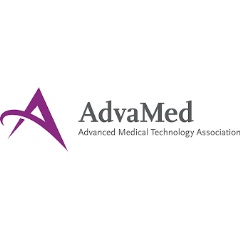In Congressional Testimony, AdvaMed Urges Passage of Diagnostic Regulatory Reform
Zach Rothstein, Executive Director of AdvaMedDx, testified before the House Energy and Commerce Committee, Subcommittee on Health during a hearing on diagnostic test regulation and FDA’s proposed laboratory developed test (LDT) rule.
In his written testimony, Rothstein urged Congress to pass diagnostic regulatory reform, “The current regulatory framework for diagnostics was established decades ago and has remained fundamentally unchanged despite dramatic advancements in the field. That is why we have supported, and continue to support, comprehensive legislative reform that would result in a modernized regulatory framework that spurs innovation and access to testing and is applied to all diagnostic tests based on their level of risk.
“We appreciate the interest of members of Congress from both sides of the aisle on this issue in recent years, and the leadership of Reps. Bucshon and DeGette in developing the Verifying Accurate Leading-Edge In Vitro Clinical Test Development (“VALID”) Act.
“Maintaining two very different oversight mechanisms for tests that are used for the same clinical purposes, with the differences in regulatory oversight often opaque to providers and patients, is not favorable for public health. Moreover, it stifles investment in, and deployment of, IVDs nationwide due to the market dynamics and incentives it fosters.
“Regulatory certainty is crucial for fostering a favorable environment for innovation. A unified oversight program would clarify regulatory expectations, reducing the ambiguity that currently hampers investment decisions. A clear regulatory landscape is instrumental in encouraging innovation of new and improved diagnostic tests.”
Also outlined in his testimony, Rothstein highlighted the key features of a modernized regulatory framework:
- FDA Oversight: A modernized, unified regulatory framework for all diagnostic tests should be overseen by FDA under the FDCA.
- Review Standard Tailored to IVDs and Ensures Patient Safety: The framework should include a premarket review standard that is clearly defined for diagnostics as analytical and clinical validity. This standard should apply the gold standard of safety and effectiveness in a manner that is specifically tailored for diagnostic tests to ensure accurate and high-quality tests.
- Transparency for Patients and Providers: A public repository of critical, descriptive information about each test offered to patients and providers should exist and include the pathway by which a test is marketed, substantiated claims of intended use, summary analytical and clinical validation information, and conformance with standards.
- Risk-Based, Flexible Framework: The framework should provide for a risk-based and flexible approach to regulation. FDA review and oversight resources should be squarely focused on tests, and on modifications to existing tests, that pose greater risks to patients, while exempting from premarket review low-risk, well-established tests, and utilizing mitigating measures to support a least-burdensome regulatory approach.
- Ensuring Access to Testing for Unmet Needs: A modernized regulatory approach to IVDs must provide a reasonable path to market for tests that meet an unmet need, including for pediatric patients and rare disorders, some of which do not fall within the humanitarian device exemption yet are critical to public health.
- Modernized Review Pathways: Updated review pathways should provide FDA necessary oversight tools while accommodating innovation and improvements in testing. These reforms would build upon recent legislative reforms applicable to devices generally, such as predetermined change control plans.
- Point-of-Care, Including Home Testing: A crucial aspect of a modernized framework must recognize that point-of-care diagnostics are critical to the future of healthcare. CLIA-waived tests (e.g., physician offices, clinics) play a vital role to support public health, including advancing health equity. The COVID public health emergency demonstrated the value in POC testing, including at-home testing, and at-home sample collection. With the increasing need for timely POC diagnostics from emerging infectious disease to antibiotic resistance, and the benefits of broader access to testing in reducing health disparities, such technologies are integral to support access and timely care for patients.
- Diagnostic Instrument Innovation: A modern framework should provide reform to ensure continued innovation in modern diagnostic instruments (sometimes referred to as “platforms”). As part of a risk-based approach, well-designed policies should incentivize the development of new, as well as improvements to, existing instruments. For instance, we recommend codification of FDA’s longstanding, pro-innovation policy known as the Replacement Reagent and Instrument Family Policy (“RRIFP”).
- Transition that Prevents Disruptions: Adoption of a modernized regulatory approach should be undertaken in a manner that avoids undue disruption to the testing market and does not result in delays in test reviews, by using an appropriate implementation timeline, providing for sufficient guidance and education about the new framework and review procedures, and providing necessary appropriated resources to support implementation.
( Press Release Image: https://photos.webwire.com/prmedia/6/319665/319665-1.png )
WebWireID319665
This news content was configured by WebWire editorial staff. Linking is permitted.
News Release Distribution and Press Release Distribution Services Provided by WebWire.
